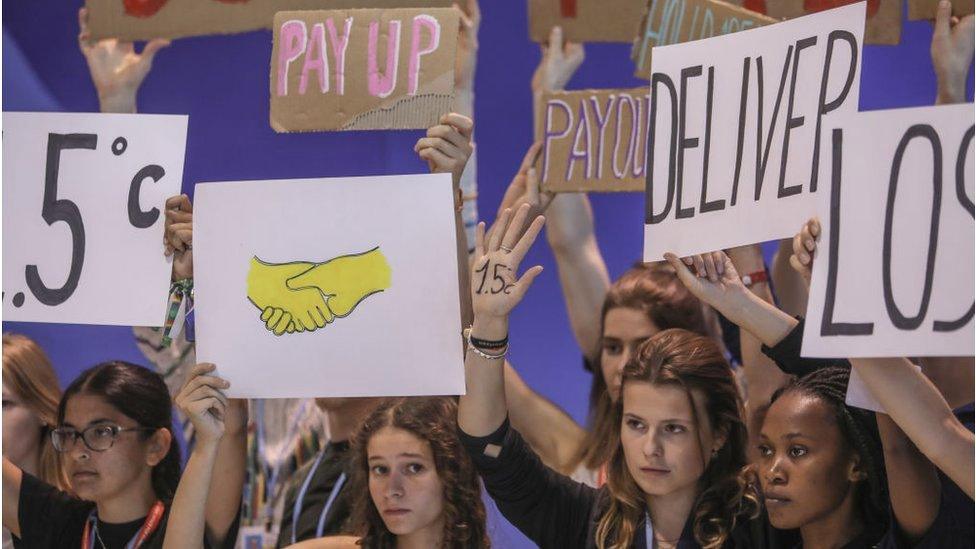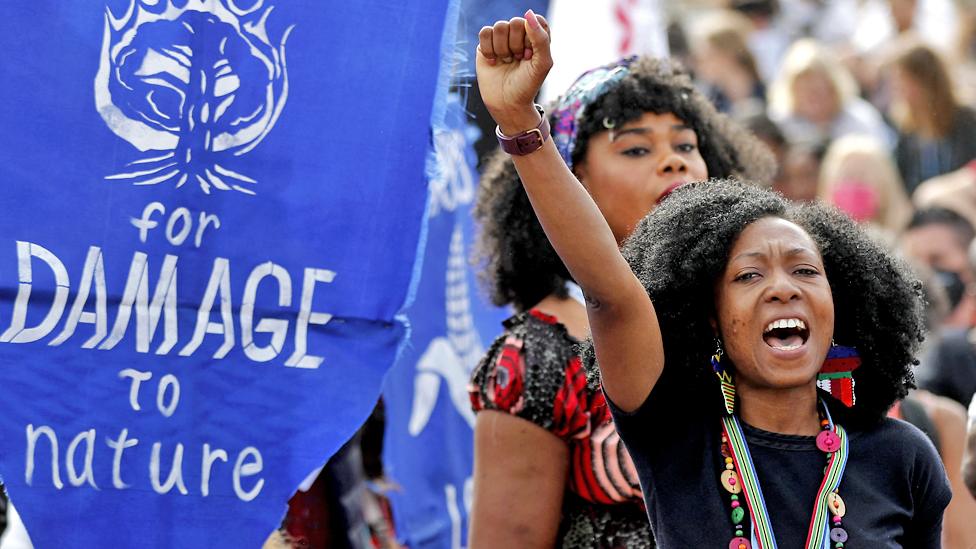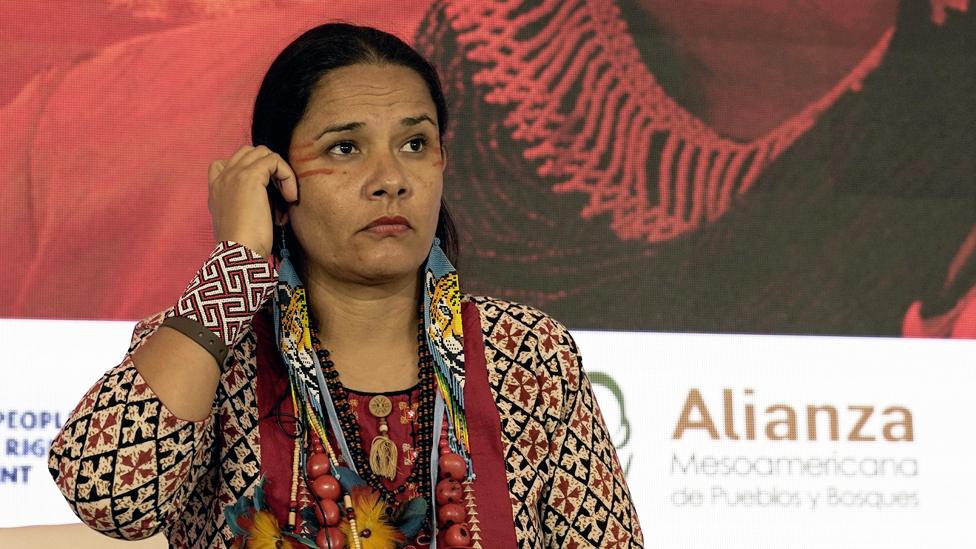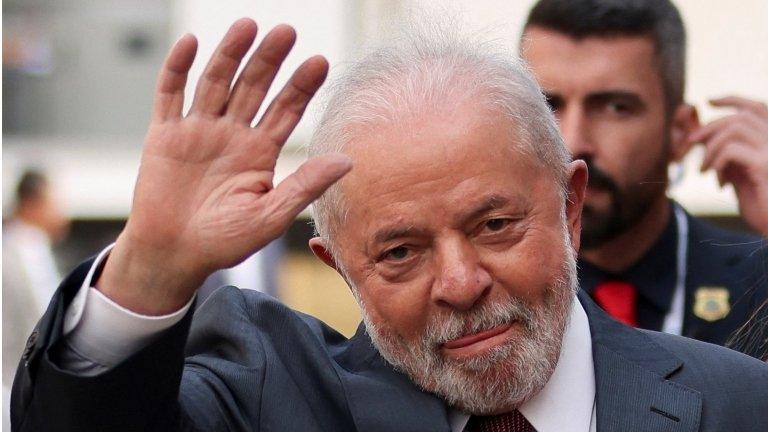COP27: UN climate talks go into the night amid tense negotiations
- Published

Young climate activists have been a strong presence at the summit in Sharm el-Sheikh
Talks over a potentially historic deal at the COP27 UN climate summit in Egypt are continuing overnight, amid reports that a breakthrough is within reach.
The two-week conference in the Red Sea resort of Sharm el-Sheikh was extended after no deal was reached by Friday.
The question of who will pay for "loss and damage" to developing nations caused by climate change has been the biggest sticking point.
Negotiators say this has been resolved, but a final deal is yet to be signed.
Delegates from nearly 200 countries are taking part in the summit.
Host nation Egypt said it wanted the overall agreement to be struck before the end of the night, but negotiators told reporters that an agreement was still some way off, and they were preparing for another long night.
These summits regularly run into overtime - and COP27 is on track to become one of the longest ever.
Negotiations continued even as the venue in the resort city was dismantled late on Saturday, and representatives of some countries were reported to have left.
The key disagreement is over a dedicated "loss and damage" fund to pay for the effects of climate change, which developing countries have been calling for for decades.
If a deal is agreed it will be a historic victory for those nations, which may go some way to reducing the burden of events such as recent flooding in Pakistan and Nigeria.
In a dramatic move, late on Thursday night the EU said it could agree to this on some conditions - which proved to be controversial.
The EU argued that all those who could afford it should contribute to the fund, including larger emerging economies like China, Saudi Arabia and Singapore.
This raised fundamental questions for the UN about the definition of developing countries.
'A unique moment'
Alpha Kaloga, lead negotiator for the Africa Group, hailed the reported agreement.
"Thirty years of patience. The day has arrived. It is done", he tweeted. "This is a unique moment, a win for all citizens of the world."
Meanwhile, Dr Siobhan McDonnell, a negotiator for the Pacific islands said: "This is a major moment in getting technical assistance for loss and damage on the ground in developing countries. The overwhelming feeling amongst negotiators is relief."
A commitment made 30 years ago stipulated that rich nations should shoulder more of the effort to reduce carbon emissions. But the landscape has vastly changed since then, and some developing countries have become much richer - and much bigger contributors to emissions.
Representatives for the US said it was working on proposals at the conference to help developing countries meet the cost of climate change.
Earlier, Pakistan's Climate Minister Sherry Rehman, said negotiators were nearing a positive outcome.
Other issues on the table included pledges on fossil fuels.
Last year at COP26 in Glasgow - which also ran well into overtime - countries agreed to "phase down" the use of coal.
There has now been a proposal to expand this to also include oil and gas.
There are concerns over whether the target of limiting warming to the key threshold of 1.5C above pre-industrial times will be upheld.
The UN says temperature rises above this level would expose millions more people to potentially devastating climate impacts.
Climate change: What’s behind the scenes of COP27 in Egypt?
Related topics
- Published20 November 2022

- Published16 November 2022

- Published16 November 2022
